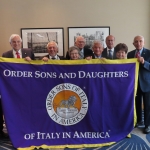In Mexico, teachers keep on protesting against the education reform, which was introduced by the government at the beginning of 2013. Over the last month, the tension between the government and the CNTE (Coordinadora Nacional de Trabajadores de la Educación) has increased, leading to the “Nochixtlán massacre” on the 19th of June, in which 8 civilians were killed.
The education reform was approved by Enrique Peña Nieto’s government in order to enhance the quality of the Mexican education system. In particular, the government wants to remove the corruption, and the lack of transparency in the selection process of the educators. One of the measures stated by the reform is a selection of the teachers based on merit, in addition to a periodic assessment of their preparation. This point of the reform has been criticized by a great number of educators, especially in the southern States of Mexico: Oaxaca, Guerrero and Chiapas. These areas of the country are inhabited by a majority of indigenous. The teachers argue that the criteria for the assessment process are not appropriate for the specific characteristics of these areas of Mexico. They suspect that the evaluation process is a way to dismiss them. The teachers affirm that their role in that poor areas of the country is irreplaceable as they speak Spanish as well as the indigenous languages. In that remote areas of Mexico, the educators establish an important connection with the children, teaching them Spanish, as well as with their parents, communicating effectively with them in the local languages. Furthermore, it may be difficult to convince teachers residing in other parts of the country to move to such isolated areas, where sometimes there is no electricity or telephone connection.
For these reasons, the teachers, represented by the CNTE, organized long lasting strikes and they blocked the circulation of vehicles in the main streets. The population of the areas affected by the protests has sometimes backed the teachers, even though the government declared that Mexicans support the education reform.
The episode occurred on the 19th of June in Nochixtlán (Oaxaca), should be mentioned for its seriousness. The police cleared out the block of a street organized by the CNTE. The government declared that the police had to open fire in response to the violence used by the demonstrators. However, the inhabitants of the town said that the police started shooting at them, so they tried to protect themselves through rudimentary weapons, such as stones. Nevertheless, the balance of the clash has been the death of 8 civilians (even though the inhabitants of the town affirm they are 11) and 3 police officers injured. The United Nations asked the Mexican government to investigate on what happened in Nochixtlán.
After the episode of Nochixtlán, the government decided to change strategy proposing to the CNTE to restart the negotiations. On the 5th of July the government representatives and the CNTE met in Mexico City in order to explain their proposals for the solution to the conflict. They scheduled a new meeting for the 11th of July, few day before the start of school holidays on the 15th of July.
The teachers are willing to negotiate, but they firmly claim the abolition of the education reform. Moreover, they affirm that if the government use violence, they will respond by all means available. It is important to bear in mind that in the south of Mexico there are armed groups related to the indigenous population, such as the Zapatista Army of National Liberation.







